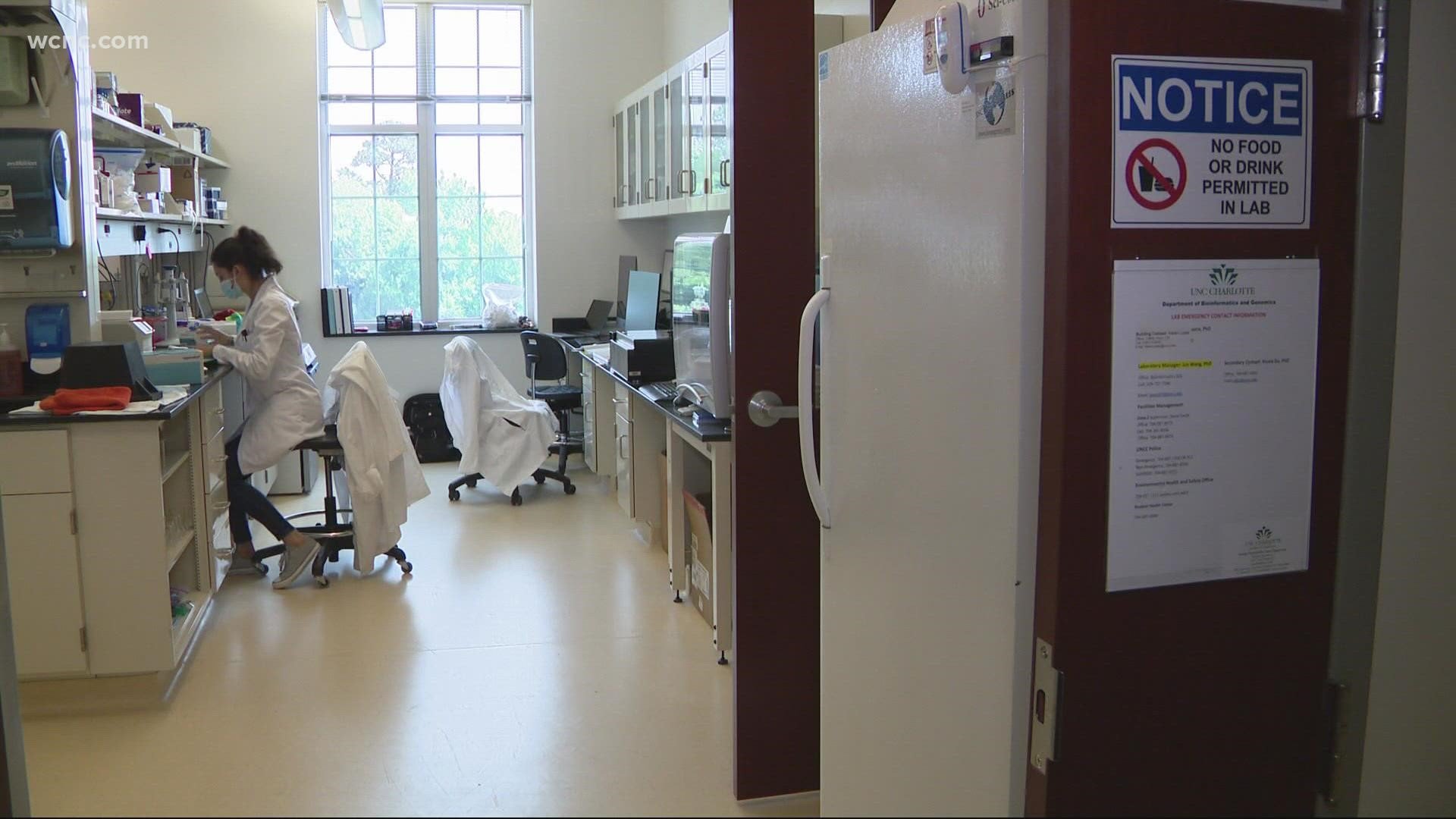CHARLOTTE, N.C. — The VERIFY team continues to field many questions about the more contagious delta COVID-19 variant. According to health experts, delta has an incubation period of four days instead of six, making people contagious sooner and paving the way to possibly infect others before the person even knows they are sick.
Delta also has a much higher viral load than the original strain of COVID-19. People infected with delta can carry 1,000 virus particles in their respiratory tract.
Sources
- The Centers for Disease Control and Prevention
- Dr. David Priest, an infectious disease specialist with Novant Health
Question 1
WCNC Charlotte viewer Dorothy W. reached out with two questions about the concerning variant:
The first: How many people have died from delta?
Answer
Unfortunately, scientists do not have a concrete answer to this question. A quick explanation why: We do not know exactly how many cases there are. We can only estimate at this time.
To tell which variant a person has, labs have to send their test samples to special labs, where the genetic material of the sample can be further tested and analyzed. Since testing capabilities are not sufficient to undertake this process with every single case, states are sending as many samples as they can to try to estimate variant prevalence.
Based on sampling, the CDC estimates, nationwide, roughly 83% of coronavirus cases in the last two weeks of July were from the delta variant. The agency also estimates about 66% of North Carolina's new COVID-19 cases are from delta and about 68% of new cases in South Carolina are from the variant.
Question 2
Dorothy also wanted to know the answer to this question: If someone has already had a coronavirus infection, are they immune to delta?
Answer
Experts say the answer can vary from person to person, and it's hard to give a blanket prediction for how natural immunity from a previous infection will translate to the delta variant and how long that protection would last.
"If you’ve had COVID, you have protection for a number of months, but that protection tends to be not as predictable or even as vigorous as protection from vaccination," Priest said. "We're still encouraging individuals who've had COVID to be vaccinated."

